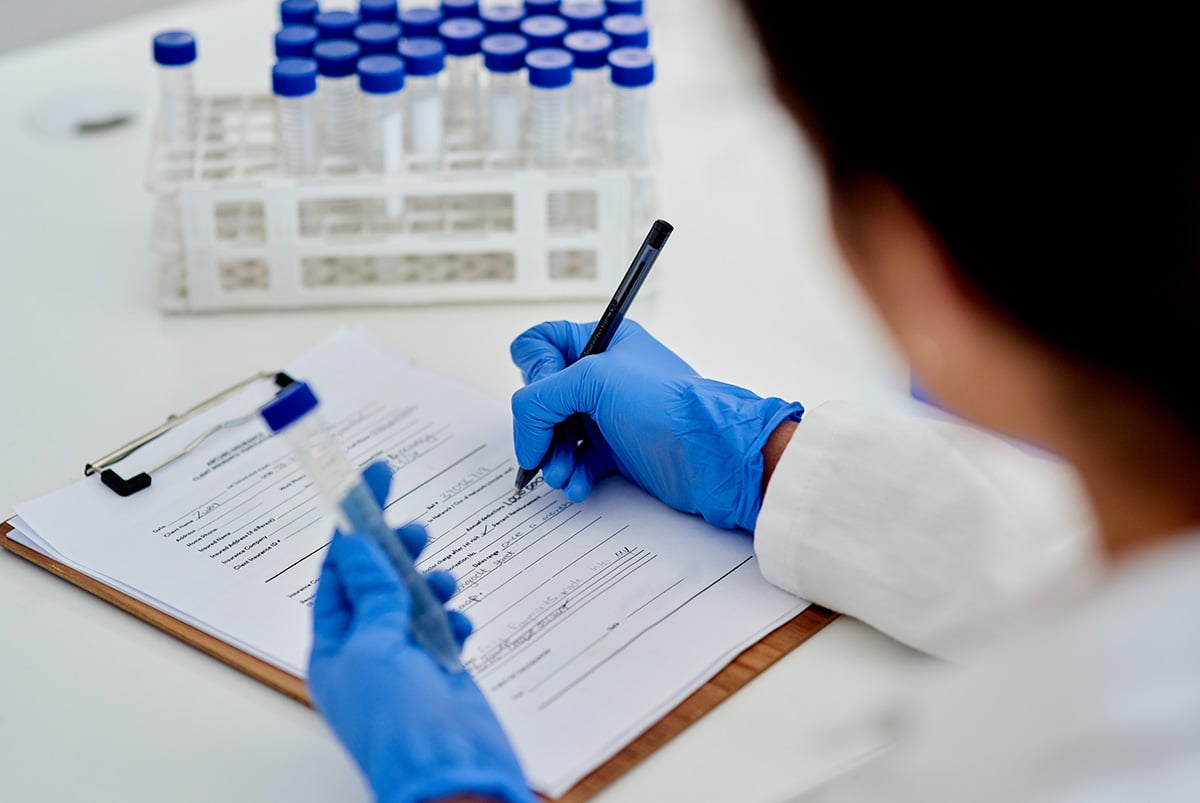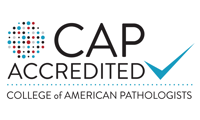Quality Assurance for Clinical Testing
Upholding reliability and compliance in quality assurance to achieve scientific excellence and superior results
- Preclinical Oncology CRO Services | Clinical Trial Specialty Testing
- Quality Assurance

Investing in Quality Assurance for Clinical Testing to Secure Clinical Compliance
At Champions, we strictly adhere to our internal Quality Assurance Policy to ensure scientific excellence and integrity are our highest priorities. Quality Assurance (QA) is monitored regularly demonstrating our management teams' commitment to quality. QA is carried out within our organization through internal audits on specific processes and procedures and client-driven external audits.
Champions is compliant in multiple regulatory environments within our organization. Specifically, we are GCLP-compliant and ISO9001 certified for all of our specialty testing and have CLIA certification for assay-specific tests.
-
Champions ensures adherence to regulatory requirement through QA audits at critical milestones and study closure
-
At Champions, prospective and current clients are welcome to visit our state-of-the-art laboratory and meet our team of experts for due diligence and in-study audits
GCLP-Compliance & Scientific Rigor
As your trusted clinical specialty testing provider, we strive to offer the highest quality specialty analytical data to our clients. To do so, we know we strictly adhere to GCLP-compliance requirements. Here are some of the benefits to working in a GCLP environment:
-
High quality data results that are reliable, reproducible, and auditable
-
Reduced incidences of false negatives and false positives
-
Results are cross-site/cross-instrument comparable to those obtained in our other global GCLP-compliant laboratories


CLIA Certification Ensures Accuracy & Reliability for Clinical Specialty Testing
Champions has long-standing experience operating a CLIA-approved PDX drug sensitivity testing program, our extensive Clinical Collaboration Network, and the global infrastructure necessary to support the acquisition, collection, and transportation of various tumor types, including solid tumors and hematological cancers.
Under our CLIA certification, 21D2030870, our laboratory performs PD-L1 Immunohistochemistry (IHC) testing on human tissues and cells from clinical trials.




What is quality assurance in clinical testing?
Quality Assurance (QA) in clinical testing is a systematic process that ensures the accuracy, reliability, and consistency of laboratory test results. It includes standardized procedures, staff training, equipment calibration, internal and external quality controls, and compliance with regulatory guidelines. QA helps prevent errors, maintain high testing standards, and ensure prime conditions are maintained through continuous monitoring and improvement for high quality results.
How does quality assurance differ from quality control?
Quality Assurance (QA) and Quality Control (QC) are crucial for upholding high standards in clinical testing, but they serve different purposes:
Quality Assurance (QA) – A preventive, process-focused approach aimed at reducing errors by implementing standard operating procedures (SOPs), staff training, and regulatory compliance. It ensures that the entire system functions reliably.
Quality Control (QC) – A detective, product-focused approach that identifies and corrects errors in test results. It involves running control samples, verifying equipment accuracy, and addressing inconsistencies in laboratory tests.
Main Difference: QA works to prevent errors by refining processes, whereas QC focuses on identifying and correcting errors in test outcomes. Both are essential for maintaining the accuracy and reliability of clinical testing.
What are Good Clinical Laboratory Practices (GCLP)?
Good Clinical Laboratory Practices (GCLP) are a set of guidelines that ensure laboratories conducting clinical research and trials generate reliable, accurate, and high-quality data while maintaining patient safety and regulatory compliance.
GCLP integrates principles from Good Laboratory Practice (GLP) and Good Clinical Practice (GCP) to standardize procedures for sample collection, handling, testing, documentation, and result reporting. It covers aspects such as staff training, equipment calibration, quality control, data integrity, and ethical compliance to ensure consistency and credibility in clinical laboratory testing.
By following GCLP, laboratories help ensure that test results are accurate, reproducible, and suitable for regulatory approval in clinical research.
How are quality assurance processes implemented in clinical laboratories?
Quality assurance (QA) processes in clinical laboratories are implemented through a structured framework that ensures accuracy, reliability, and compliance with regulatory standards. The key steps include:
-
Standard Operating Procedures (SOPs) – Establishing detailed guidelines for sample collection, handling, testing, and reporting to maintain consistency and reduce errors.
-
Staff Training & Competency Assessment – Ensuring that laboratory personnel are well-trained and regularly assessed for their technical skills and adherence to protocols.
-
Quality Control (QC) Measures – Implementing internal and external QC programs, including control samples, proficiency testing, and instrument calibration to verify test accuracy.
-
Equipment Maintenance & Calibration – Regular servicing and calibration of laboratory instruments to ensure precise and consistent performance.
-
Data Integrity & Documentation – Maintaining proper record-keeping, audit trails, and secure data management to ensure traceability and compliance with regulations.
-
Error Management & Continuous Improvement – Identifying, documenting, and investigating deviations or errors, followed by corrective and preventive actions (CAPA) to enhance processes.
-
Regulatory Compliance & Accreditation – Adhering to international and national quality standards, such as ISO and GCLP, through regular audits and inspections.
These steps help maintain high-quality laboratory testing, ensuring accurate results.
